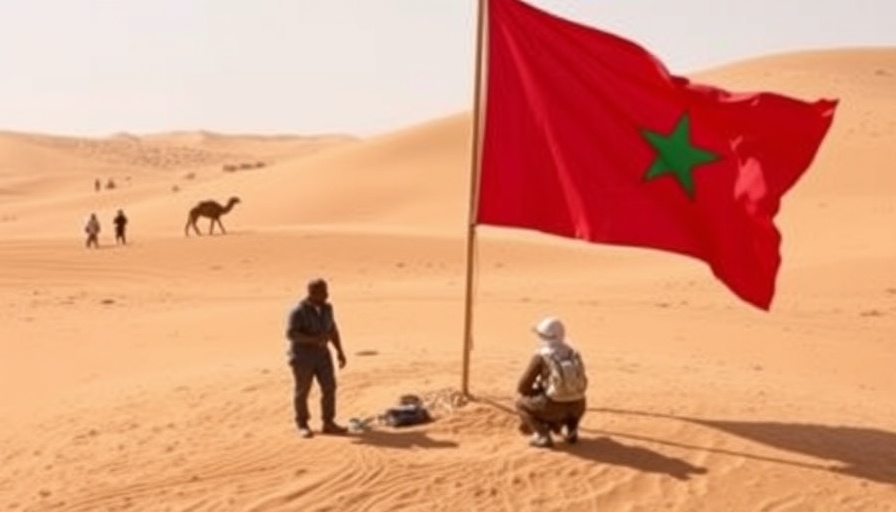
Ghana's Support Marks a New Era in African Diplomacy
In a significant diplomatic turn, Ghana has officially endorsed Morocco's autonomy plan for Western Sahara, framing it as the only realistic avenue for resolving a decades-long conflict. This statement came after discussions between Ghana's Foreign Minister Samuel Okudzeto Ablakwa and Moroccan counterpart Nasser Bourita in Rabat. Ghana's declaration aligns it with a growing coalition of countries, including Kenya and the UK, that previously recognized Morocco's sovereignty over the disputed territory. This shift signals a notable change in regional geopolitics, emphasizing diplomatic engagement in resolving territorial disputes.
Understanding the Western Sahara Dispute
The conflict over Western Sahara has long been a divisive issue, pitting Morocco, which claims sovereignty over the region, against the Algeria-backed Polisario Front, advocating for an independent state. Ghana's endorsement reflects a broader acknowledgment of Morocco's stance within international circles, particularly after the U.S. recognition in 2020. By positioning the autonomy plan as the sole viable option, Ghana underlines the importance of utilizing the United Nations (UN) framework as the locus for future negotiations, aiming for a mutually beneficial resolution.
Broader Implications for regional Trade and Cooperation
Beyond political alignment, the Ghana-Morocco partnership holds significant economic potential. The two nations revealed plans to collaborate on defense cooperation and food security, particularly through the utilization of Moroccan fertilizers to enhance Ghana’s cocoa farming. This strategic relationship could help Ghana reduce its substantial food import bill, which amounts to $3 billion annually. The integration of Morocco’s agricultural strength into Ghana’s economy signifies a concerted effort to bolster regional trade and food sovereignty.
The Future of African Diplomacy and Global Trade
As Ghana aligns itself with Morocco, it sets a precedent for how African nations could navigate complex geopolitical landscapes. This endorsement not only reshapes regional alliances but also insists on putting African solutions at the forefront of resolving internal disputes. Diplomatic shifts like these can impact global trade dynamics, particularly given Morocco's established role in the agricultural sector and Ghana's aspirations to leverage its geographical advantages for trade through the Morocco-Nigeria pipeline initiative.
Actionable Insights for Business Leaders
For investors and policymakers, Ghana's endorsement is more than a diplomatic gesture; it is a clarion call to reconsider investment strategies within Africa. As countries like Ghana and Morocco pursue collaborative frameworks for economic development, stakeholders should explore opportunities within agricultural partnerships, trade agreements, and infrastructural investments that align with these evolving diplomatic landscapes. Engaging with these insights could help position companies and governments favorably within Africa's shifting economic paradigm.
 Add Row
Add Row  Add
Add 


 Add Row
Add Row  Add
Add 

Write A Comment